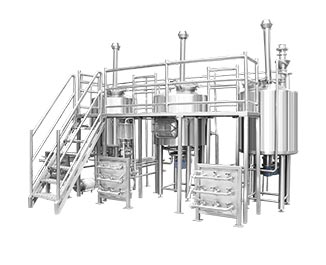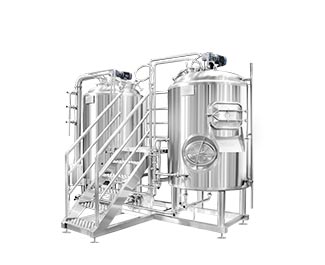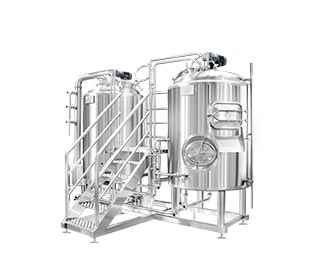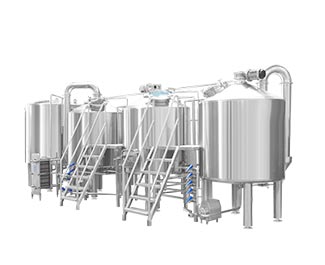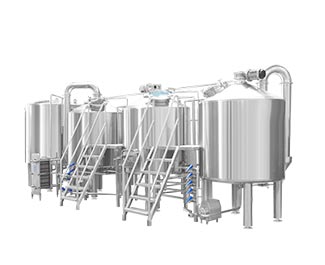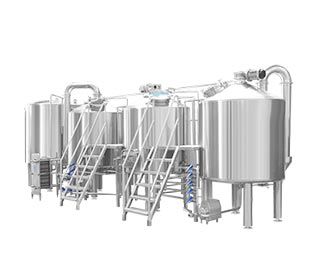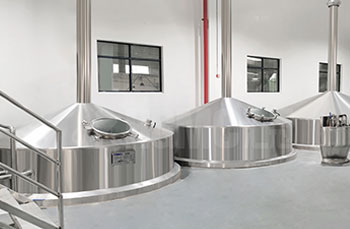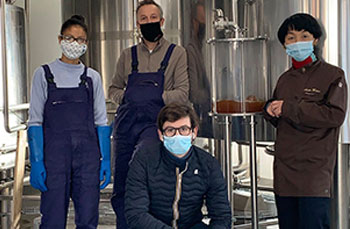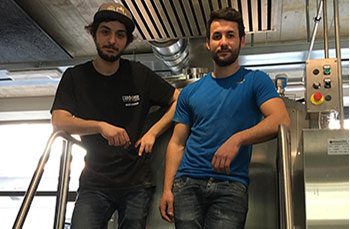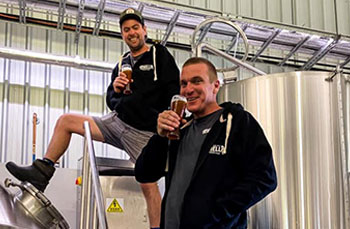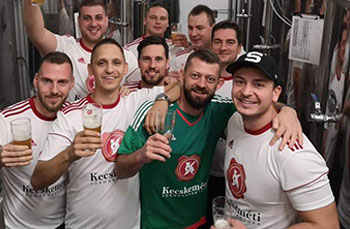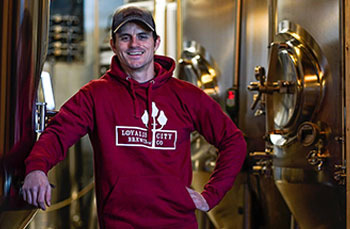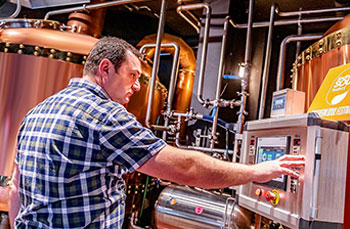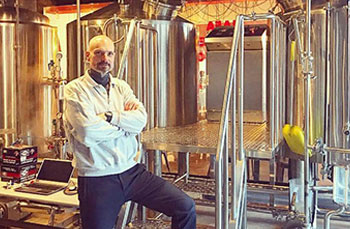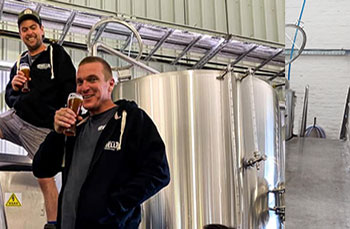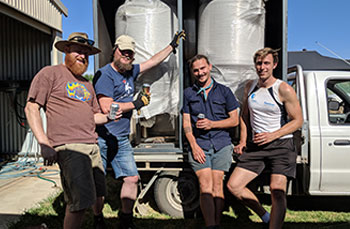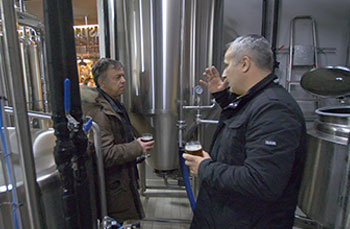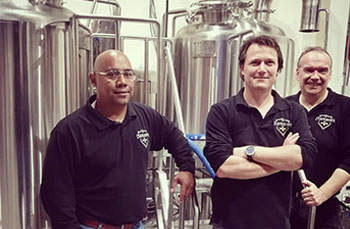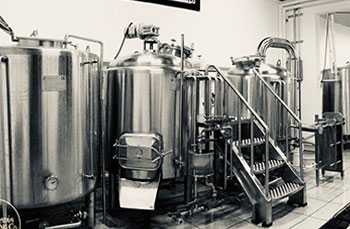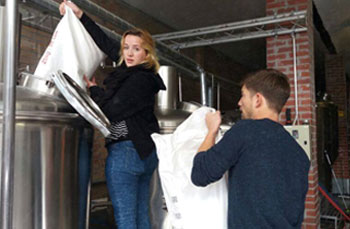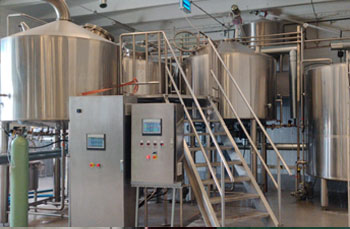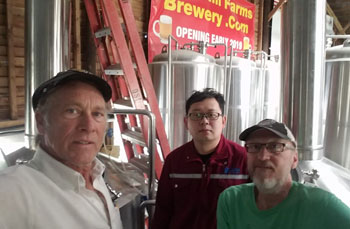Capacity More Than 200L -1000L
When determining your investment costs, we offer a range of equipment options and financing solutions tailored to brewery needs, ensuring a smooth startup and operational launch.
Site Requirements and Recommendations:
- Height Specifications: Small Batch Brewery Equipment (1 HL – 10 HL) and require a ceiling height of 10.5 ft. (custom heights available)
- Drainage: 4″ inch floor drain is preferred;
- Electrical: 3 phase/380(220, 415, 480…)v/50(60)Hz; Single Phase/220(110, 240…)v/50(60)Hz
- Heating Method: Electric/steam/direct fire heating
- Control Level: PID display control panel, PLC semi-automatic touch screen panel, PLC fully automatic control panel
- Welding: TIG 100% full welding joints
- Polishing Accuracy: ≤0.4μm
- Other: water, air, CO2, and an internet connection for remote access.
- Small Batch Brewing Equipment :Brew Kettles/Mash Tuns/Fermenters/Brite Tanks/Filtration/Cooling Systems/Cleaning / Sanitation/Packaging
Small Batch Brewery Equipment Features
Small Batch Brewery Equipment Type
| Equipment | Description |
|---|---|
| Brew Kettles | Heats mash liquid to facilitate starch and sugar conversion. Boils sweet wort with hops for aroma and bitterness. Available as direct fire or indirect heat (steam jackets). Sizes from 3 BBL to 7 BBL. |
| Mash Tuns | Mixes crushed malt with hot water to convert starches to fermentable sugars. Typically insulated stainless steel vessels with false bottom. Sizes between 3-7 barrels. |
| Fermenters | Ferments sweet wort into beer over days or weeks. Conical or cylindrical stainless steel vessels that are pressure capable and have temperature control. Sizes from 1-7 barrels. |
| Brite Tanks | Cold conditions and carbonates beer after initial fermentation prior to packaging. Similar vessels as fermenters but focus is clarity and clean flavors. |
| Filtration | Removes haze particles, hop debris, yeast etc for clarity and stability. Plate filters or centrifuge are common options. |
| Cooling Systems | Rapidly cools boiled wort and maintains fermentation temp. Glycol chillers and heat exchangers are popular choices. |
| Cleaning / Sanitation | Critical for sterilizing equipment and preventing contamination. Usually automated CIP spray balls, chemical mixes. |
| Packaging | Fills beer into bottles, cans or kegs for distribution. Choices range from manual fillers to semi-automatic canning/ bottling lines. |
200L/500L Parameter
| Model | HG-200 / 200L Nano Brewery | HG-300 / 300L Microbrewery | HG-500 / 500L Microbrewery | HG-500 / 500L 3 Vessel Brewhouse |
| Capacity | 100L/Batch | 300L/Batch | 500L/Batch | 500L/Batch |
| Material | 304 Stainless Steel | SUS304 | SUS304 | SUS304 |
| Combination method | Mash/lauter tun, kettle/whirlpool tank | Mash/lauter tun, kettle/whirlpool tank | Mash/lauter tun, kettle/whirlpool tank | Mash/lauter tun, kettle/whirlpool tank |
| Application | Restaurants, bars, hotels, brewery | Restaurants, bars, hotels, brewery | Restaurants, bars, hotels, brewery | Restaurants, bars, hotels, brewery |
| Heating way | Electric heating way | Steam heating/Electric heating/Direct fire heating | Steam heating/Electric heating/Direct fire heating | Steam heating/Electric heating/Direct fire heating |
| Voltage | AC380/220V, 50/60HZ | AC380/220V, 50/60HZ | AC380/220V, 50/60HZ | AC380/220V, 50/60HZ |
| Power | 3.0kw | 18Kw | 18Kw | 18Kw |
| Water consumption | 3.5m3/T | 3.5m3/T | 3.5m3/T | 3.5m3/T |
| Size | Ø650*800mm | 1160mm | 1160mm | 1160mm |
| Insulation Materials | Polyurethane | 2500mm | 2500mm | 2500mm |
| Floor area | 2.5m2 | 5m2 | 5m2 | 5m2 |
| Degree of automation | Semi-automatic/Fully automatic | Semi-automatic/Fully automatic | Semi-automatic/Fully automatic | Semi-automatic/Fully automatic |
Brewery Application Case
Frequently Questions
Nano brewery is a brewery smaller than a microbrewery. Nano brewery refers to a brewery that produces beer in batches of 3bbl or less. This is a recognized meaning in the industry.
If the brewer has a unique beer idea. They can open a nano brewery to test the market. Compared with investing in other types of breweries, opening a nano brewery requires very little capital. So, the nano-brewery equipment is the best starting point to start the beer business.
If you want to provide craft beer. But do not want to open a full-scale brewery, then Nano Brewery is your best choice. If you want to know this information, you can contact us. Hgmc will provide you with a complete solution.
These include grain silos, mills, weighing systems, mash tuns, pumps, lauter tuns, wort grants, coolers and aerators, brew kettles, yeast handling systems, fermenters, bright beer tanks, filters, and a variety of other tanks for mixing and storage..
It depends on your daily production requirements. The beer needs to kept in the fermentation tank for about 40 days. The more daily production, the more fermentation tanks needed. Of course, it is also possible to expand the capacity of the fermenter. If you don’t know how many fermenters you need, you can contact Micet Craft. Our engineers will provide you with turnkey solutions and prices.
As for our quality, all our raw materials used are stainless steel 304 or 316 material, the plate is all perfect 3mm and 2mm, some manufacturers with low prices, but they are 2.7mm.
Our factory have strict quality control and process inspection & testing system to make sure you get the quality you expect and delivery on time. Each of our orders shipment will have 5 inspection steps and the inspection record from materials in checking, production process, jacket pressure testing by water and air, finished product inspection and 48 hours water testing, equipment packing and loading inspection, finished product to the delivery and packing process, etc. Every of our tank will have the data plate with the pressure testing record and serial numbers to track. Testing 12hours with air and water, jacket testing pressure is 5Bar, internal shell testing pressure is 4Bar, and before packing we will also have 48hours water testing, which all these testing record will show on our data late with the tanks shipping.
Also for packing and shipping, we also have our strict standards, the shipping department will work out the checking list and pack them in wooden box, you will receive a checking list with everything we shipped.
The cost of starting a nano-brewery can be staggering, the average start-up cost of a nano-brewery business is about $33,230, and the maximum start-up cost is about $60,032. There are large differences in the start-up costs of nano breweries, and these differences are mainly caused by location, size of nano brewery equipment, and furniture. When opening a nano brewery, other aspects of the cost, such as production licenses and licenses, are the same.
- Sales & engineers could be keeping 24 hours online for service.
- HGMC provides a 6 year warranty on tanks sold with manufacturing defects from the factory.
- HGMC provides a 6 year warranty on tank accessories&electronic components provided they are used under the scope.
- HGMC does not cover damage to tanks from unloading of tanks at customer site, damage resulting from improper use of tanks for products other than beer or appropriate beverage, damage from exceeding designed tanks pressure, damage from CIP or cleaning, usage above and beyond the scope of the tanks design.
Normally our production circle is from 30-50working days depending on the order.
For the time being, from the day we get your deposit to the delivery we are looking at 90-150 days at your door delivery. Our leadtime will vary depending on our factory workload but we do like to keep honest leadtimes so there is no surprises except getting the equipment earlier that what it was suppose to.
We are manufacture of brewhouse in 2 vessel, 3 vessel and 4 vessel configurations and provide commercial brewery from 1HL to 500HL sizes for a wide range brewery needs.
This is not a question that can be answered very accurately, because every brewery has different requirements. If your brewery is too small, your space will be crowded. If your space is too large, you will waste a lot of money on startup costs and the space will not be well utilized. But we can provide you with some tips: 3BBL~5BBL brewery equipment needs about 300~500 square feet, and 7BBL~15BBL brewery equipment needs about 550~1200 square feet. Of course, if you need relatively accurate numbers, welcome to leave us a message.
The main difference between a microbrewery and a nano brewery is the amount of production. Micro means one in a million, giving the impression of being small. By regulation, microbreweries must produce less than 15,000 barrels of beer per year. Nano means one part in a billion, which is smaller than micro. There is no exact amount of production for a nano-brewery, but it will be less than a microbrewery. Nano breweries are usually run by one person — one person produces beer, sells it, etc. Of course, the size of the equipment used in nano breweries and microbreweries varies because of the different production volumes of the breweries.
Get in touch
Turnkey Solutions for your Brewing Process
Head office
Huixin Times Center, No. 2228 Tianchen Road, Jinan, China
Email us
Telephone
+86 531 86418866
+86 18006415555
Contact information
Speak with a sales representative during normal business hours (Monday – Friday, 8:30am – 5:30pm UTC+8).

